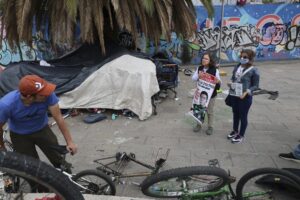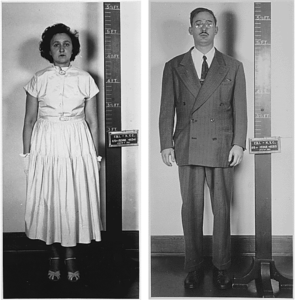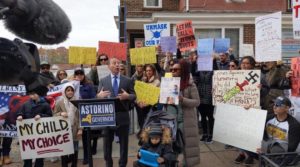PROVIDENCE, R.I. (WPRI) — A panel that has been crafting ideas for how to provide reparations for harms committed to Black and Indigenous people in Providence voted Monday on an outline of their recommendations, with plans to finalize a report to submit to the mayor as soon as next week.
The Municipal Reparations Commission’s recommendations will help Mayor Jorge Elorza craft a proposal for how to spend $10 million in American Rescue Plan Act funds that Providence has set aside for reparations.
The commission’s recommendations would cost much more than $10 million if fully implemented. They include a long list of programs that range from a home-repair fund to wiping out municipal court debt to creating a new charter school for Black and Indigenous students.
“We want more than $10 million,” said Rodney Davis, the chair of the commission. “This is just the beginning.”
He said both state ARPA dollars and private dollars could be used to fund the proposals, which are aimed at repairing injustices to people of African and Indigenous heritage dating back centuries.
“There are a lot of institutions here in the city of Providence, including the city of Providence, who are responsible for the injury and harm,” Davis said.
He noted that Harvard University recently announced a $100 million endowment fund for slavery reparations after releasing a report on its complicity in the practice. Brown University commissioned a similar report in 2006 that was considered a landmark on its release.
The recommendations under discussion by the commission do not include sending out direct payments to Black and Indigenous residents of Providence.
And while deciding how to spend the money is a challenge, perhaps even trickier is determining who exactly should receive it.
In its draft report, the commission defines reparations as “closing the present-day racial wealth and equity gap that has left too many African heritage, Indigenous and other residents of Providence much poorer than their white counterparts.”
Under the reparations panel’s new recommendations, however, white residents could be eligible for the proposed programs if they live in qualified census tracts (QCTs) or are living in poverty.
At their 18th meeting Monday, which was originally slated to be the final meeting, commission members spent the first hour debating who should qualify for the reparations program. Those questions included how to define African heritage — should it be all of Africa, or just sub-Saharan Africa? — as well as which low-income Providence neighborhoods should be included, and how to make sure college students from affluent families don’t end up qualifying because they have little-to-no income.
The commission determined the programs created would be available to anyone who lives in a QCT, regardless of race, and residents who make less than 50% of the area median income. (Qualified census tracts are defined by the federal government based on the local poverty rate and household incomes.)
Raymond Watson, one of the commission’s members, said Tuesday morning he wasn’t aware that anyone other than those of African and Indigenous heritage would be eligible.
“White people should not be included for reparations,” Watson told 12 News. He said other races that are not of African or Indigenous heritage, such as Asians and Latinos, should also not be included.
The group debated how to avoid college students qualifying because of their low incomes, even if they come from affluent families out of town. The group ultimately landed on limiting the low-income eligibility to Providence residents who were born here, or who have lived in the city for three years or more. For college students who aren’t from Providence, the three-year clock wouldn’t start until they leave school.
A similar debate took place regarding the qualified census tracts, which include Upper & Lower South Providence, Washington Park, Mount Hope (Lippitt Hill), Olneyville, Fox Point, Hartford, Elmwood, and Smith Hill, according to the commission’s draft report.
The guidelines for spending the ARPA money say cities can “presume that families residing in QCTs or receiving services provided by Tribal governments were disproportionately impacted by the pandemic,” according to the draft report.
But the list of neighborhoods didn’t sit well with everyone.
Raymond Watson, one of the commission’s members, said of the Summit section of Mount Hope: “I see some nice cars parked over there.”
The group ultimately opted to add Wanskuck and Manton as eligible communities in addition to the existing list of QCTs.
So what could reparations look like?
It won’t be direct checks sent out to the eligible residents of Providence, at least not under the recommendations approved by the commission.
“We want to be able to have the largest impact in being able to affect change and help our communities,” Davis said, explaining the decision to set up programs instead of doing direct payments. “We don’t just want a slice of bread, we want a loaf. We deserve that.”
Among the first items listed in the report is a formal apology for African enslavement and a formal acknowledgement of Indigenous lands.
The programs being recommended include a homeowner and financial literacy program, home repair fund, investments in African heritage and Indigenous community organizations, workforce training, expanding the guaranteed income program, expanding youth programs, and expanding African and Indigenous municipal employment.
Additional proposals include a legal defense fund for people facing eviction, investments in Black and Indigenous-owned media companies, grants for Black and Indigenous-owned businesses, a fund for people to get legal assistance, a bail bond fund, a new school for people of African and Indigenous heritage, an artist fund, a day care provider fund.
The commission also recommends decriminalizing the city’s ordinance banning the open consumption of alcohol in public.
One of the largest recommendations is to wipe out all municipal court debt and stop suspending driver’s licenses for unpaid municipal fines and fees.
The recommendation says the city should continue wiping out the court debt until it enacts “systemic reforms” that include allowing people to contest their tickets virtually.
The commission also recommends ending any use of no-knock warrants and providing “adequate resources” to the Providence External Review Authority, a group with oversight of the Providence Police Department.
The draft report also includes a special fund specifically for people who are “direct survivors and descendants of Providence urban renewal displacement” from neighborhoods including Lippitt Hill, West Elmwood, College Hill, South Providence, Olneyville and Fox Point.
The fund would be used for items like down payment assistance and scholarships.
There are no dollar amounts attached to any of the proposals.
Since the program is aiming to use ARPA dollars, which are meant to help municipalities recover from COVID-19, the draft report makes a connection between the centuries-old history of enslavement and racism and the racial disparities of the pandemic.
“Today’s racial wealth gap is the product of centuries of public policies and practices that continue to keep non-white residents of Providence from getting ahead,” the draft report states. “Decades of discriminatory policies and practices also created the preconditions that make many African heritage and Indigenous peoples and other historically marginalized residents more vulnerable to COVID-19 inequities today.”
The commission has not yet scheduled its final meeting, where the panel is expected to approve a final report incorporating the decisions that were made Monday.
Elorza, whose office has been staffing the commission meetings, did not immediately comment on the recommendations. He has been championing the effort to enact municipal reparations, but has limited time to get a program over the finish line before he leaves office at the end of the year.
The mayor is expected to submit a proposal to the City Council in the fall. The council takes recess in August and returns in September.
Steph Machado (smachado@wpri.com) is a Target 12 investigative reporter covering Providence, politics and more for 12 News. Connect with her on Twitterand on Facebook.





